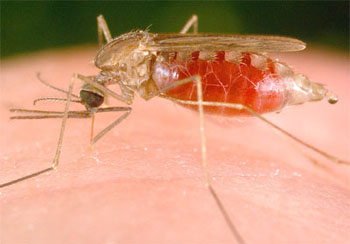
There is a new bug in town. Well, its not so much new as different. And well, its been around, mostly in monkeys, specifically macaques, but now it has proven to be deadly in humans. You might call it a cousin of another bug that causes a very familiar disease: malaria. This one is called plasmodium knowlesi. The one we’re all familiar to, which is the most deadly and is responsible for most of the malaria cases in Africa is called plasmodium falciparum. There are actually three more cousins(species) of malaria parasite: plasmodium malariae, plasmodium ovale and plasmodium vivax which are usually has less serious symptoms and not fatal in humans.
The reason p. knowlesi is raising eye right now is because rather than just infected macaques that are found in South East Asian rainforests, it has infected and killed some patients. Unfortunately, it is easily confused with p. malariae under the microscope and might have been dismissed as not been serious, which it actually wasn’t at first. But one thing about it is different: it is capable of reproducing every 24 hours in the blood, meaning that it is potentially lethal. Researchers at the University of Malaysia Sarawak tested over found 150 patients in a Malaysian hospital between July 2006 and January 2008 and found that this cousin is responsible for two-thirds of the infections. Most patients recovered after being easily treated with drugs such as chloroquine or primaquine but one in ten patients has complications such as difficulty breathing or kidney problems and two died. With a fatality rate of 2% it is just as deadly as p. falciparum malaria; remember that the problem with malaria is not necessarily the death rate but the poor conditions of the people who have it.
Also something else is interesting: researchers says that all patients of p. knowlesi malaria have a low platelet count as opposed to other types of malaria which could lead to excessive bleeding or problems with blood clotting but none have occurred yet. An expert at Oxford says that this new information disproves the theory that malaria does not jump from species to species and wonders how p. knowlesi with contribute to future cases of malaria.
http://news.bbc.co.uk/2/hi/health/8246063.stm
The CDC website before has a lot of information on malaria include the number of US outbreaks. I didn’t know that there were still malaria outbreaks in the US, may you didn’t either? Take a look!
http://www.cdc.gov/Malaria/facts.htm

No comments:
Post a Comment